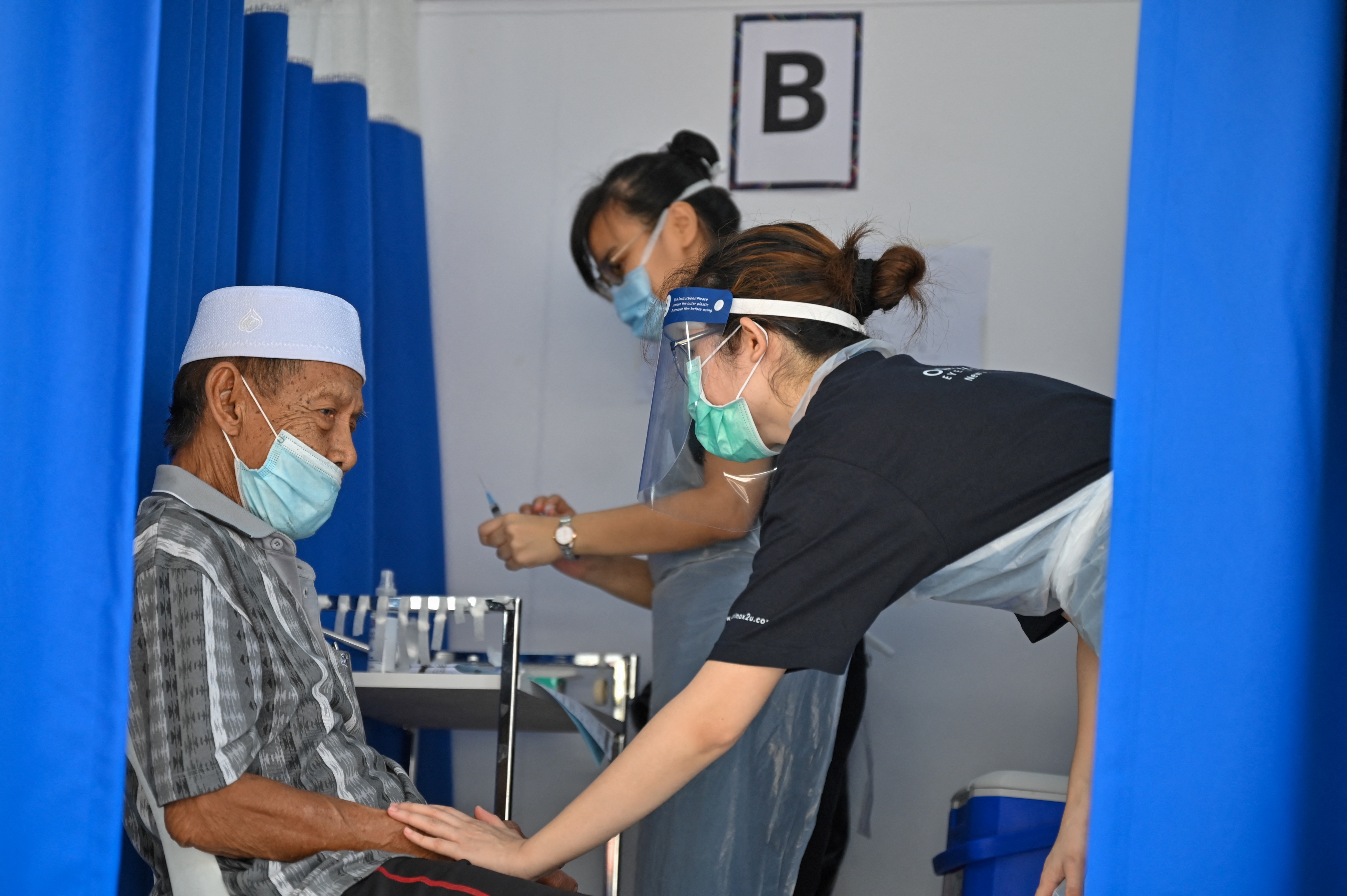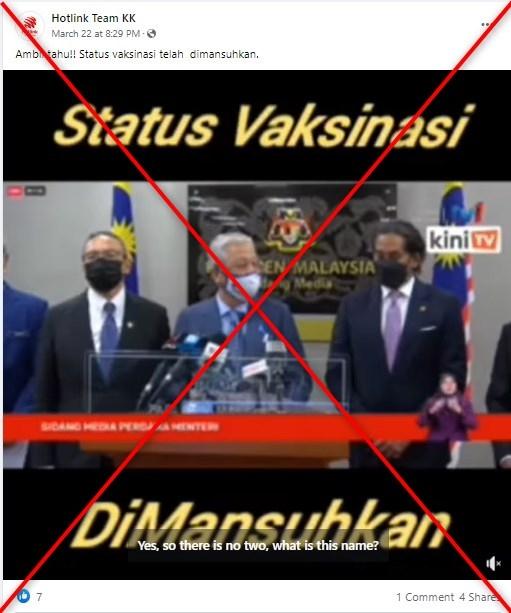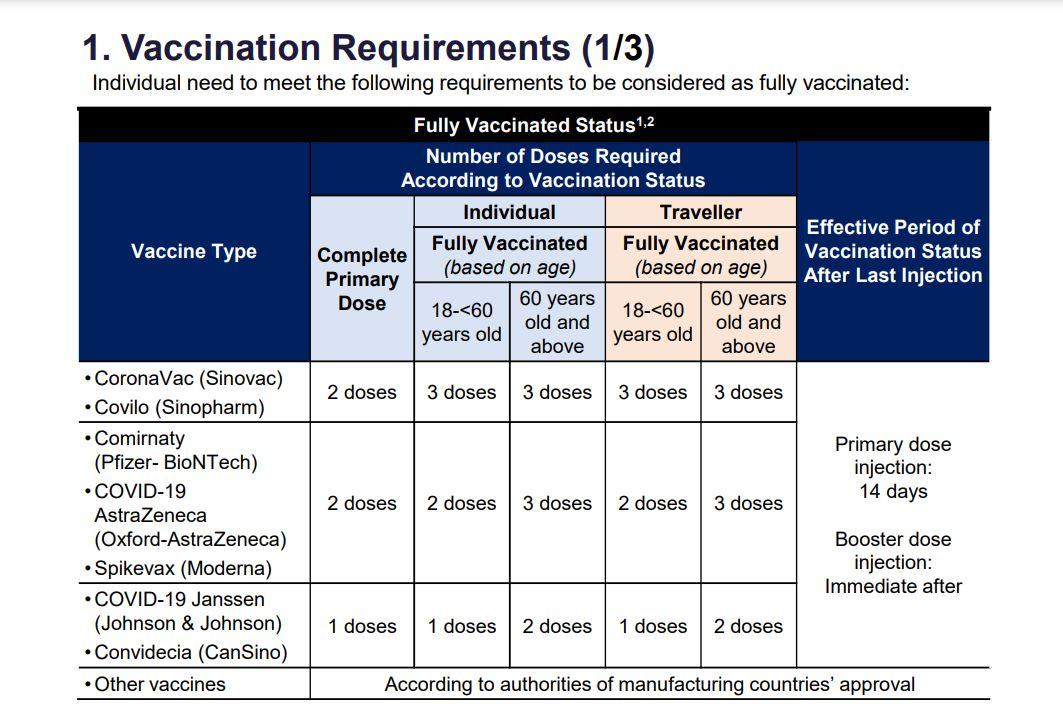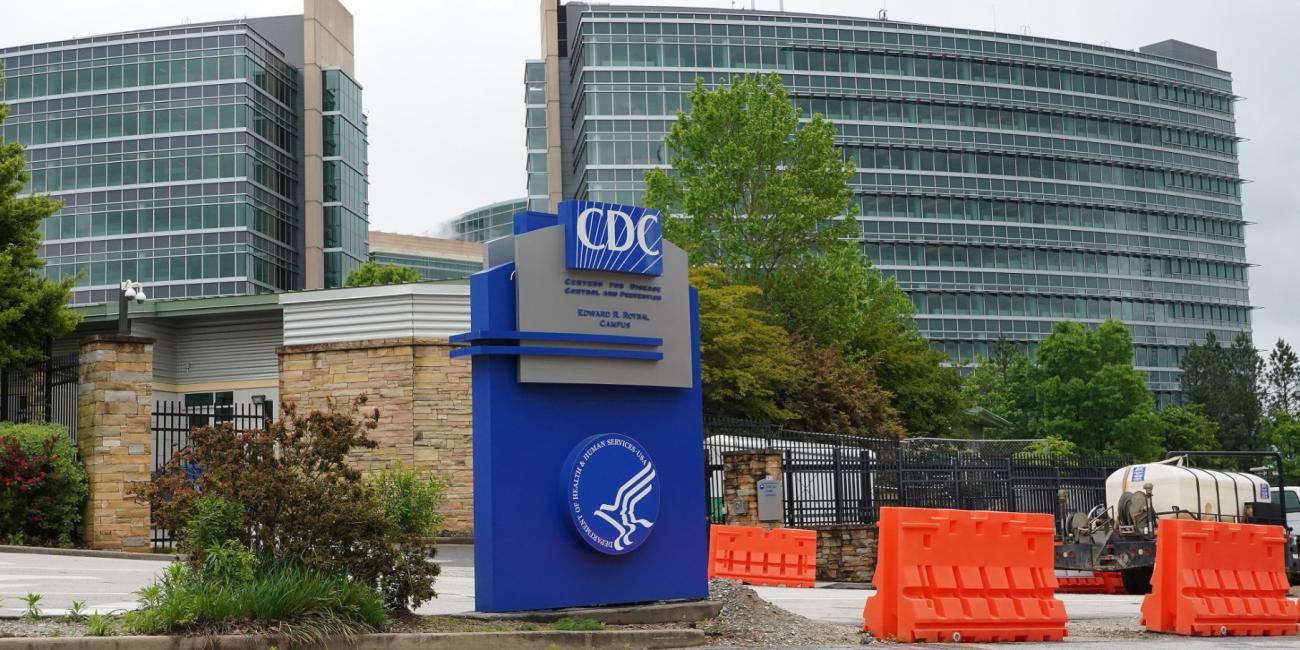
Posts share misleading claim about Covid-19 vaccination requirements in Malaysia
- This article is more than three years old.
- Published on April 8, 2022 at 05:05
- 3 min read
- By AFP Malaysia
The video of Malaysian Prime Minister Ismail Sabri giving a press statement was shared here on Facebook on March 22, 2022.
The post's Malaysian-language caption translates to English as: "Take note. Vaccination status has been abolished."
Text superimposed on the video also says: "Vaccination Status Abolished."
In the 30-second clip, Ismail Sabri says in Malaysian language: "Regarding the need for vaccination, the capacity limit of employees which previously depended on vaccination coverage [for employees] will be abolished.
"All individuals are allowed to make interstate travel regardless of their vaccination status.
"So it will not arise, if there's a booster or no booster, they can make interstate travel and so on, including for workers."

More than 67 percent of Malaysia's adult population have received a third Covid-19 jab, official Malaysian government statistics show.
The video has been viewed more than 7,900 times after it was shared alongside a similar claim on Facebook here, here and here; and on TikTok here.
Comments on the posts indicated that some social media users were misled.
One person wrote: "So this means we do not need the booster?"
Another said: "Those who got the shot got tricked...Got tricked by [Health Minister Khairy Jamaludin] until they died".
Below is a screenshot of some misled Facebook comments:

The claim, however, is misleading.
Pandemic regulations
Ismail Sabri's announcement can be seen in this video from local media outlet KiniTV and this video from Malaysian broadcaster TV3 — both were published on March 8, 2022.
During that event, he announced Malaysia would "transition toward endemicity" from April 1, 2022, and pandemic regulations would be relaxed.
In the speech, he says vaccination requirements will be dropped for interstate travel and some workplaces from April 1, 2022.
Details of the loosening regulations can be seen here.
Vaccination requirements
As of April 8, 2022, there are currently seven Covid-19 vaccines being offered in Malaysia: AstraZeneca, Pfizer/BioNTech, Moderna, Sinovac, Sinopharm, Johnson & Johnson and CanSino.
Government guidelines for the "full vaccination" status depend on the type of vaccine and the age of recipients.
Below are the guidelines for the "full vaccination" status:

As of April 8, 2022, most activities in Malaysia require participants to at least receive the primary dose, as explained here.
This includes recreational sports, religious gatherings and dining in restaurants.
People who have not received at least one dose of a Covid-19 vaccine or are unvaccinated can only participate in "essential activities", such as buying food and basic necessities or going to school or work.
The full list of "essential activities" is also included in the same government guidelines, published on April 1, 2022:
- Buying food, drinks and basic necessities;
- Staying in hotels, guest accommodations and homestays;
- Obtaining medical and health services including laboratories and
pharmacies; - Attending activities related to career or continuity of livelihood such as
school, examination, seminars, work and interviews; - Banking including pawn shops;
- Wedding, marriage registrations and divorce proceedings;
- Non-contact sports and recreational activities in outdoor areas;
- Travelling using air, land and sea transports including interstate travel; and
- Other activities that involves emergency situations such moving to
Temporary Evacuation Centre.
Copyright © AFP 2017-2026. Any commercial use of this content requires a subscription. Click here to find out more.
Is there content that you would like AFP to fact-check? Get in touch.
Contact us




